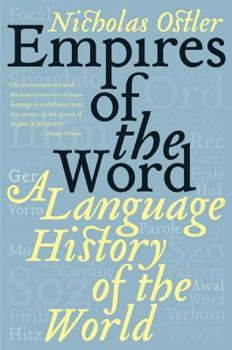Empires of the Word: A Language History of the World
Select Format
Select Condition 
Book Overview
"Monumental . . . Ostler's] massive overview of major languages in world history puts the current global spread of English in perspective."--Chicago Tribune
In this linguistic Thousand and One Nights, Nicholas Ostler creates the first history of the world's great languages, gloriously celebrating the wonder of words that binds communities together and makes possible both the living of a common history and the telling of it.
From the uncanny resilience of Chinese through twenty centuries of invasions to the engaging self-regard of Greek and to the struggles that gave birth to the languages of modern Europe, these epic achievements and more are brilliantly explored, as are the fascinating failures of once "universal" languages. A splendid, authoritative, and remarkable work, it demonstrates how the language history of the world eloquently reveals the real character of our planet's diverse peoples and prepares us for a linguistic future full of surprises.






